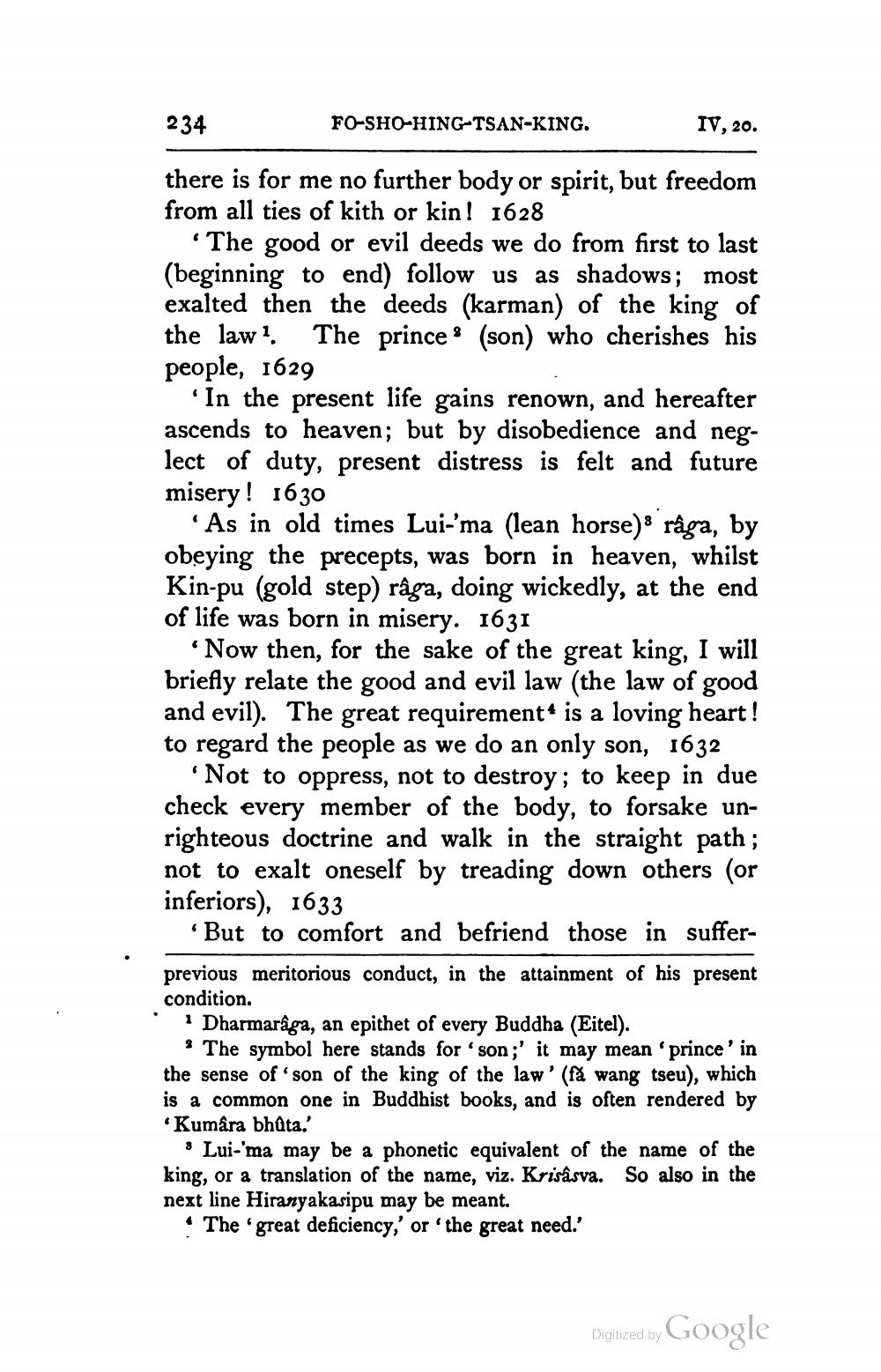________________
234
FO-SHO-HING-TSAN-KING.
IV, 20.
there is for me no further body or spirit, but freedom from all ties of kith or kin! 1628
The good or evil deeds we do from first to last (beginning to end) follow us as shadows; most exalted then the deeds (karman) of the king of the law? The prince ? (son) who cherishes his people, 1629
'In the present life gains renown, and hereafter ascends to heaven; but by disobedience and neglect of duty, present distress is felt and future misery! 1630
*As in old times Lui-'ma (lean horse) 3 râga, by obeying the precepts, was born in heaven, whilst Kin-pu (gold step) râga, doing wickedly, at the end of life was born in misery. 1631
"Now then, for the sake of the great king, I will briefly relate the good and evil law (the law of good and evil). The great requirement is a loving heart! to regard the people as we do an only son, 1632
'Not to oppress, not to destroy; to keep in due check every member of the body, to forsake unrighteous doctrine and walk in the straight path ; not to exalt oneself by treading down others (or inferiors), 1633
But to comfort and befriend those in sufferprevious meritorious conduct, in the attainment of his present condition.
Dharmaraga, an epithet of every Buddha (Eitel). * The symbol here stands for son ;' it may mean 'prince' in the sense of son of the king of the law' (fă wang tseu), which is a common one in Buddhist books, and is often rendered by Kumara bhūta.'
Lui-'ma may be a phonetic equivalent of the name of the king, or a translation of the name, viz. Krisâsva. So also in the next line Hiranyakasipu may be meant.
The great deficiency,' or 'the great need.'
Digitized by Google




